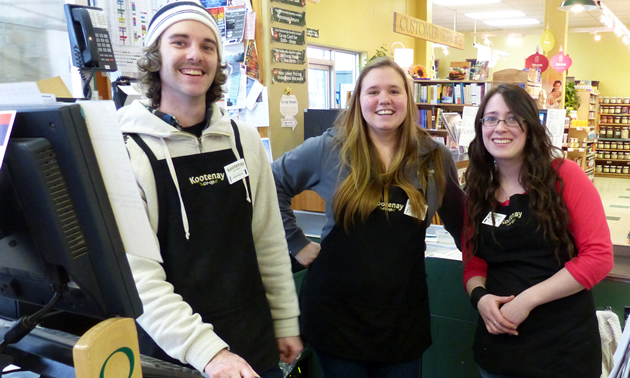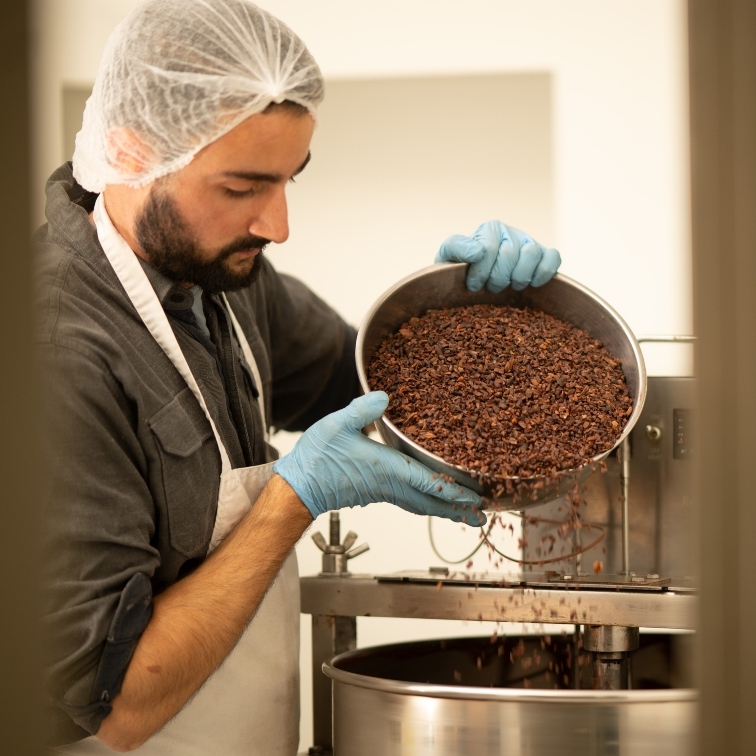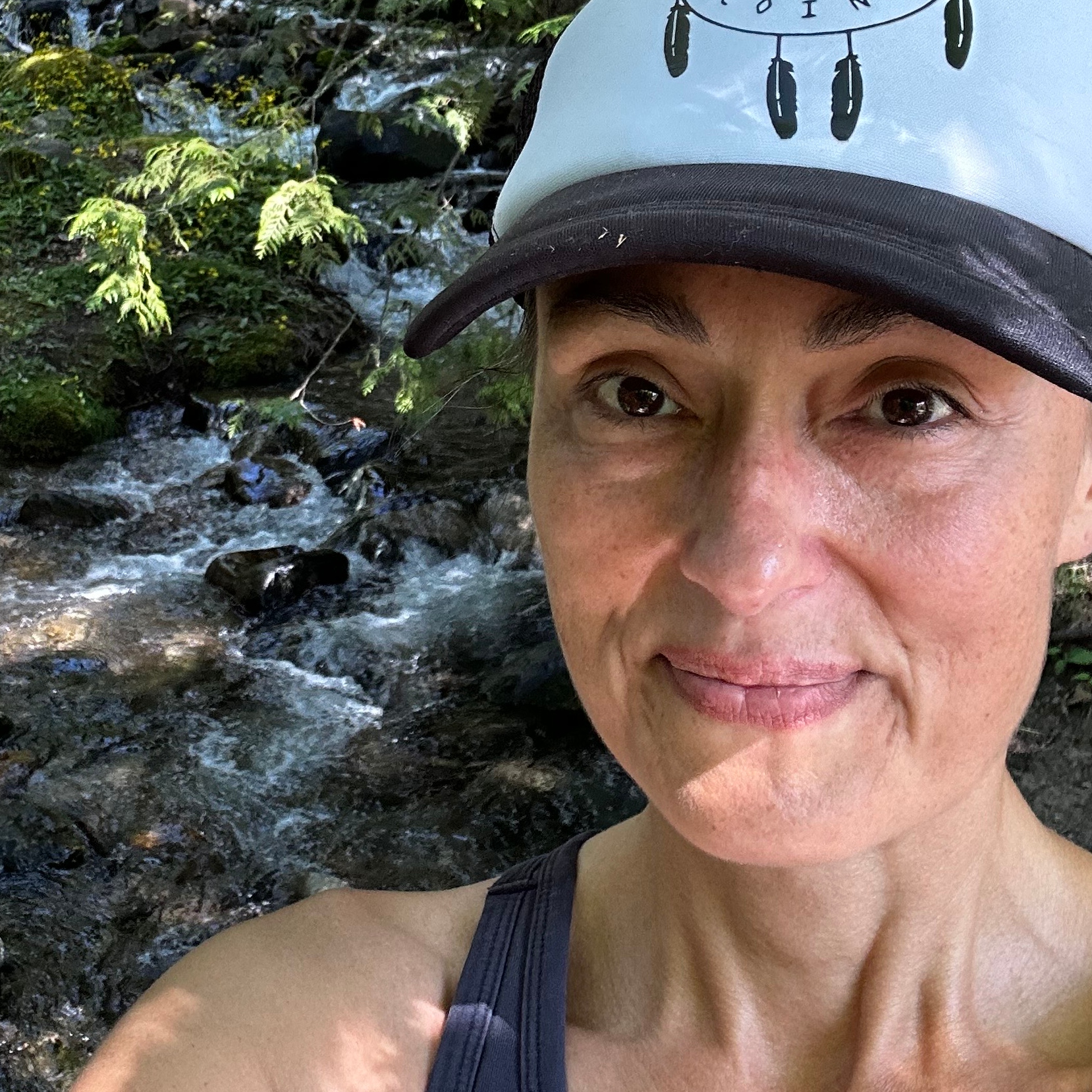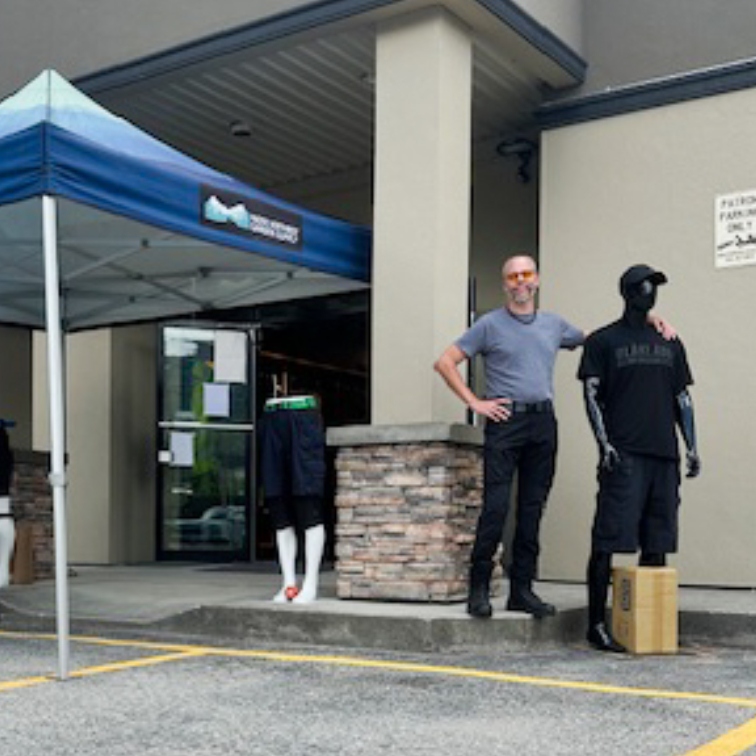Kootenay Co-op: more than just food
Kootenay Co-op's assistant front-end manager, Julia Hamilton, is passionate about local, organic and fairly traded products

Kootenay Co-op staff from left to right: Andrew Duff, Julia Hamilton, Alexa Cramton. — Marnie Christoffersen photo
Julia Hamilton, originally from Kaslo, B.C., is a married 25-year-old with a hobby farm. She is also incredibly passionate about natural, organic and local food. Hamilton is the assistant front-end manager at Kootenay Country Store Co-op in Nelson. Hamilton's love for her job, her fellow employees and the values behind the store is inspiring, and we had a chance to find out more about why she loves what she does. Hamilton has been at the co-op for almost two years, the first of which was spent as a cashier.
What is the co-op all about?
The Kootenay Co-op is a natural food co-operative, which makes us different from a regular business in that we are owned by member-owners. We are very different from a traditional business or grocery store because we are completely independent and owned by the community. We have a board elected by the membership.
We specialize in local foods, but we also sell a lot of organic, natural and health foods. We have lots of local produce that is only organic. We also have a wellness section where we sell food supplements and natural health products. We have a deli where we do hot paninis, soups and, again, lots of local products. We also sell some pretty cool raw stuff and have a very substantial grocery department.
Can you walk me through a day in your life at Kootenay Co-op?
Our department is the largest at the co-op. At any given time, we have 25 staff members in the front-end department. There are about 70 employees in the whole store, so you can see we are a pretty big chunk of the staff.
We normally have eight people on in a day. I come in around noon, check in with all cashiers and customer service and they update me on what's going on during the day. Most of my day is spent orchestrating the front end, making sure cashiers are getting everything they need, taking their breaks and getting support. I also spend a lot of time helping our customers and members with anything they need. I also sign people up for cooking or wellness classes and make sure the front end is communicating with the rest of the store. It's important for them to know what's going on in the whole store, especially produce. We close at 8 p.m., but I usually stay until about 8:45 to help the cashiers get out for the day and close the store. My job is mostly about dealing with people.
What do you like most about your job?
Two things. First of all, I love the staff. I always wanted to work at the co-op because I heard really good things. The staff are just an incredible amazing group of people. I think the front end is especially close, but so is the rest of the store. A huge number of people here are friends outside the store and most people have their core friend group here—that's how close we are. There are a lot of really neat personalities at the co-op. We have people from all walks of life who have chosen to work at the co-op for personal, ethical-type reasons. We've got everyone from high school students to people in their 60s with two master's degrees. It's a great mix and makes it a lot of fun to work here.
I also love working at the co-op because of what it represents, what it does and the values behind it. It's in no way a regular business. It feels really special to be a part of something that's making such a massive difference, not only in our community but in the natural foods sector and in the food sector at large. It's actually a massive force for change and it's really cool to be a part of that.
What is the importance of local, organic food?
Because I have a small farm, I've seen it from the ground up. A lot of the land around us has been developed. The more farmland that we lose, the more detrimental it is to the community. The more we support local farmers, the more we can have those spaces available to us. It is a huge part of the ecosystem and makes the Kootenays beautiful.
Food security is another thing that's coming up more and more. It is so important for us to grow our own food. It's better for the environment, and the people who are doing it are working really hard and they deserve to be paid a living wage, in the very least. We support that and work with a lot of farmers. We have long-standing relationships with many farmers in the region. And you can't forget about the flavour—it is completely different, especially in summer when everything is at its peak. There's a huge difference between a heritage tomato that's picked two hours before it's on the shelf—brought to us by the farmer—and something that comes from who-knows-where in Mexico. It's not just healthy, local and organic food, it's health for our families, it's important to our ecosystem and it's about keeping where we live beautiful and pure.






Comments